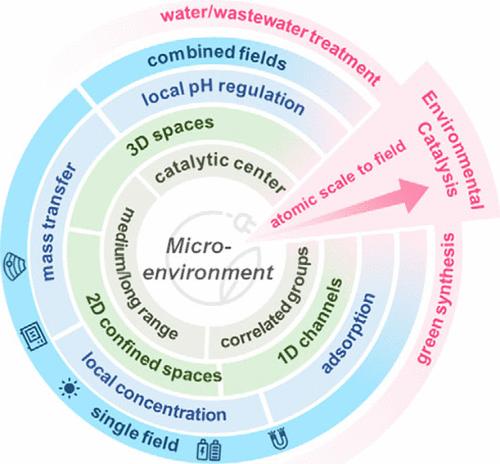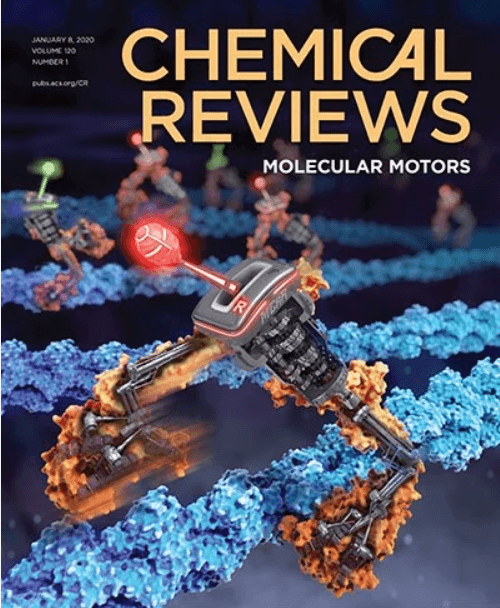Microenvironment Engineering of Heterogeneous Catalysts for Liquid-Phase Environmental Catalysis
IF 51.4
1区 化学
Q1 CHEMISTRY, MULTIDISCIPLINARY
引用次数: 0
Abstract
Environmental catalysis has emerged as a scientific frontier in mitigating water pollution and advancing circular chemistry and reaction microenvironment significantly influences the catalytic performance and efficiency. This review delves into microenvironment engineering within liquid-phase environmental catalysis, categorizing microenvironments into four scales: atom/molecule-level modulation, nano/microscale-confined structures, interface and surface regulation, and external field effects. Each category is analyzed for its unique characteristics and merits, emphasizing its potential to significantly enhance catalytic efficiency and selectivity. Following this overview, we introduced recent advancements in advanced material and system design to promote liquid-phase environmental catalysis (e.g., water purification, transformation to value-added products, and green synthesis), leveraging state-of-the-art microenvironment engineering technologies. These discussions showcase microenvironment engineering was applied in different reactions to fine-tune catalytic regimes and improve the efficiency from both thermodynamics and kinetics perspectives. Lastly, we discussed the challenges and future directions in microenvironment engineering. This review underscores the potential of microenvironment engineering in intelligent materials and system design to drive the development of more effective and sustainable catalytic solutions to environmental decontamination.

用于液相环境催化的异质催化剂微环境工程
环境催化已成为缓解水污染和促进循环化学发展的科学前沿,而反应微环境对催化性能和效率有着重要影响。本综述深入探讨了液相环境催化中的微环境工程,将微环境分为四个尺度:原子/分子级调控、纳米/微米级封闭结构、界面和表面调控以及外部场效应。我们分析了每个类别的独特性和优点,强调了其显著提高催化效率和选择性的潜力。概述之后,我们介绍了先进材料和系统设计的最新进展,以利用最先进的微环境工程技术促进液相环境催化(如水净化、转化为高附加值产品和绿色合成)。这些讨论展示了微环境工程在不同反应中的应用,以从热力学和动力学角度微调催化体系并提高效率。最后,我们讨论了微环境工程的挑战和未来方向。本综述强调了微环境工程在智能材料和系统设计方面的潜力,以推动开发更有效、更可持续的环境净化催化解决方案。
本文章由计算机程序翻译,如有差异,请以英文原文为准。
求助全文
约1分钟内获得全文
求助全文
来源期刊

Chemical Reviews
化学-化学综合
CiteScore
106.00
自引率
1.10%
发文量
278
审稿时长
4.3 months
期刊介绍:
Chemical Reviews is a highly regarded and highest-ranked journal covering the general topic of chemistry. Its mission is to provide comprehensive, authoritative, critical, and readable reviews of important recent research in organic, inorganic, physical, analytical, theoretical, and biological chemistry.
Since 1985, Chemical Reviews has also published periodic thematic issues that focus on a single theme or direction of emerging research.
 求助内容:
求助内容: 应助结果提醒方式:
应助结果提醒方式:


